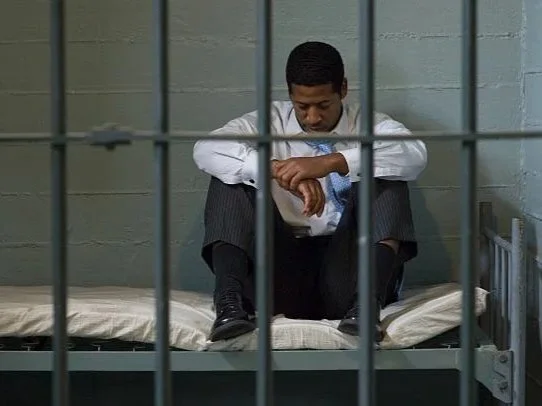Educational Barriers for Young People in DC’s Juvenile and Adult Secure Facilities
Older, court-involved youth with special education needs face distinct and complex problems. These young people have federal and local special education rights that, in many cases, go unenforced for years. Most have histories of out-of-District placements, poor academic achievement, and educational disruption. Often, these young people have repeated multiple school years with only having earned a smattering of credits despite years in high school. Older, court-involved students with disabilities face the highest rates of high school dropout, future court-contacts, and unemployment. Multi-system involvement and a lack of interagency coordination compound these problems. The result: the systemic funneling of older, court-involved youth with disabilities from the deepest end of the juvenile system into the adult criminal legal system.
-
Under the Individuals with Disabilities Education Act (IDEA), incarcerated students with disabilities are entitled to the same special education protections as disabled students in the community. Court-involved students in the District of Columbia who are detained or incarcerated are placed at one of three locations operated by DC based on their age and the posture of their legal case. Generally speaking, students under age 18 are typically detained at the Youth Services Center (YSC), a short-term, secure facility. Those under 18 years old who have been subsequently adjudicated as delinquent by the DC Superior Family Court are incarcerated at New Beginnings Youth Development Center (New Beginnings), a long-term, secure facility. Students over the age of 18 years old detained while awaiting trial or incarcerated for a misdemeanor offense are held at one of two adjoining facilities, the Central Detention Facility (CDF) or the Correctional Treatment Facility (CTF) (collectively, the “DC Jail”). In DC, eligibility for IDEA services extends through the end of the school year in which the student turns 22 years old. Regardless of which facility the student is held in, the right to be enrolled in school and working toward a diploma is not modified when the student enters custody.
Correctional education for students with disabilities has long been fraught with disparities far beyond those found with students in community schools. Many young people with disabilities in the legal system face educational challenges long overlooked by the time they are detained in a secure facility. These students frequently have histories of repeating grades, repeating courses, taking and earning course credit and still having to repeat the courses, not receiving timely evaluations for updated special education supports, not receiving special education supports at all, being unfairly excluded from school for disciplinary reasons for which they have legal protections, etc.
In recent years following the pandemic, many students experienced unprecedented levels of learning losses that they never recovered from, resulting in the need for additional specialized supports. Yet, some young people with special education needs have not received additional assessments to determine the extent of their need, which in turn, contributes to students falling further behind their peers. These students often continue to struggle without the necessary supports, transferring from school to school, and never remaining at a school long enough to earn credits. This problem is compounded during short detentions in secure facilities, especially when a student’s educational records have not been transferred from their sending school to the facility. For more information on the educational rights of young people in facilities, click here.

